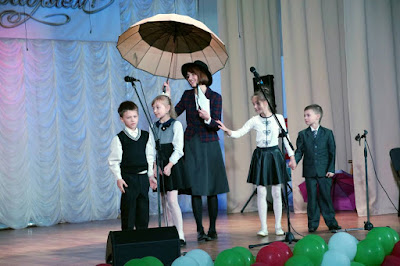Это конструкция, состоящая из существительного в общем падеже (noun in a common case) или местоимения в объектном падеже (pronoun in an objective case) и инфинитива. Напомним, как выглядят местоимения в объектном падеже:
I – me
you – you
he – him
she – her
it – it
we – us
they – them
Complex object в английском языке имеет свои правила употребления, которые стоит рассмотреть. В основном, сложное дополнение в английском языке используется после некоторых глаголов, которые можно сгруппировать в определенные категории. Итак, complex object в английском языке употребляется с глаголами:
Выражающими физическое восприятие и ощущение to see – видеть, to watch – смотреть, to notice – замечать, to observe – наблюдать, to feel – чувствовать, to hear – слышать и другие.
После этих глаголов мы ставим инфинитив без частицы to.
I have never heard you sing. – Я никогда не слышал, чтобы ты пел.
We saw the postman slip a thick envelope into the box. – Мы видели, как почтальон опустил в почтовый ящик толстый конверт.
С глаголами восприятия помимо инфинитива может употребляться и причастие настоящего времени (Participle I). Если мы в complex object в английском языке применяем инфинитив, мы подчеркиваем однократность совершаемого действия, если же берем причастие, то демонстрируем процесс протекания действия.
I saw her run into the house. – Я видела, как она забежала в дом.
I saw her running along the road. – Я видела, как она бежала по дороге.
К тому же, если глаголы see и hear используются в значении «знать» и «понимать» соответственно, мы не обращаемся к complex object на английском языке, а берем придаточное предложение:
I see that you are in low spirits. – Я вижу, что у тебя нет настроения.
Выражающими побуждение, принуждение: (to let – позволять, to make – заставлять, to have – распорядиться, to cause – причинять, заставлять). Инфинитив также без to.
You can’t make me do such things. – Ты не можешь заставить меня сделать это.
Never let him go. – Никогда не отпускай его.
They had the man do what they wanted. – Они заставили этого человека сделать то, что они хотели.
Выражающими желание и потребность (to want – хотеть, to wish / to desire – желать, to like – нравиться, should / would like – хотел бы).
He wanted his students to note the colours of animals. – Он хотел, чтобы его студенты отметили окрас животных.
The inspector would like you to explain everything to him. – Инспектор хотел бы, чтобы вы все ему объяснили.
Выражающими предположение (to expect – ожидать, рассчитывать; to suppose – полагать, to believe – считать, полагать; to consider / to find – считать).
Parents usually expect their children to be obedient. – Родители обычно рассчитывают, что их дети будут послушными.
We believe it to be the best way out of this situation. – Мы полагаем, что это будет лучший выход в данной ситуации.
Выражающими знание, осведомленность, утверждение (to know – знать, to think – думать, to state – констатировать, to note – отмечать, to report – сообщать и другие).
People knew him to be a great sculptor. – Люди знали, что он великий скульптор.
She thought him to be a qualified specialist. – Она думала, что он квалифицированный специалист.
Выражающими принуждение, приказ, разрешение или просьбу (to order – приказывать, to allow – разрешать, to forbid – запрещать и другие).
He ordered him to stop this conversation. – Он приказал ему прекратить этот разговор.
Как было видно из последних четырех пунктов, во всех случаях инфинитив употребляется с частицей to.
Complex Object. Exercise 1.
Complex Object. Exercise 2.
I – me
you – you
he – him
she – her
it – it
we – us
they – them
Complex object в английском языке имеет свои правила употребления, которые стоит рассмотреть. В основном, сложное дополнение в английском языке используется после некоторых глаголов, которые можно сгруппировать в определенные категории. Итак, complex object в английском языке употребляется с глаголами:
Выражающими физическое восприятие и ощущение to see – видеть, to watch – смотреть, to notice – замечать, to observe – наблюдать, to feel – чувствовать, to hear – слышать и другие.
После этих глаголов мы ставим инфинитив без частицы to.
I have never heard you sing. – Я никогда не слышал, чтобы ты пел.
We saw the postman slip a thick envelope into the box. – Мы видели, как почтальон опустил в почтовый ящик толстый конверт.
С глаголами восприятия помимо инфинитива может употребляться и причастие настоящего времени (Participle I). Если мы в complex object в английском языке применяем инфинитив, мы подчеркиваем однократность совершаемого действия, если же берем причастие, то демонстрируем процесс протекания действия.
I saw her run into the house. – Я видела, как она забежала в дом.
I saw her running along the road. – Я видела, как она бежала по дороге.
К тому же, если глаголы see и hear используются в значении «знать» и «понимать» соответственно, мы не обращаемся к complex object на английском языке, а берем придаточное предложение:
I see that you are in low spirits. – Я вижу, что у тебя нет настроения.
Выражающими побуждение, принуждение: (to let – позволять, to make – заставлять, to have – распорядиться, to cause – причинять, заставлять). Инфинитив также без to.
You can’t make me do such things. – Ты не можешь заставить меня сделать это.
Never let him go. – Никогда не отпускай его.
They had the man do what they wanted. – Они заставили этого человека сделать то, что они хотели.
Выражающими желание и потребность (to want – хотеть, to wish / to desire – желать, to like – нравиться, should / would like – хотел бы).
He wanted his students to note the colours of animals. – Он хотел, чтобы его студенты отметили окрас животных.
The inspector would like you to explain everything to him. – Инспектор хотел бы, чтобы вы все ему объяснили.
Выражающими предположение (to expect – ожидать, рассчитывать; to suppose – полагать, to believe – считать, полагать; to consider / to find – считать).
Parents usually expect their children to be obedient. – Родители обычно рассчитывают, что их дети будут послушными.
We believe it to be the best way out of this situation. – Мы полагаем, что это будет лучший выход в данной ситуации.
Выражающими знание, осведомленность, утверждение (to know – знать, to think – думать, to state – констатировать, to note – отмечать, to report – сообщать и другие).
People knew him to be a great sculptor. – Люди знали, что он великий скульптор.
She thought him to be a qualified specialist. – Она думала, что он квалифицированный специалист.
Выражающими принуждение, приказ, разрешение или просьбу (to order – приказывать, to allow – разрешать, to forbid – запрещать и другие).
He ordered him to stop this conversation. – Он приказал ему прекратить этот разговор.
Как было видно из последних четырех пунктов, во всех случаях инфинитив употребляется с частицей to.
Complex Object. Exercise 1.
Complex Object. Exercise 2.













































